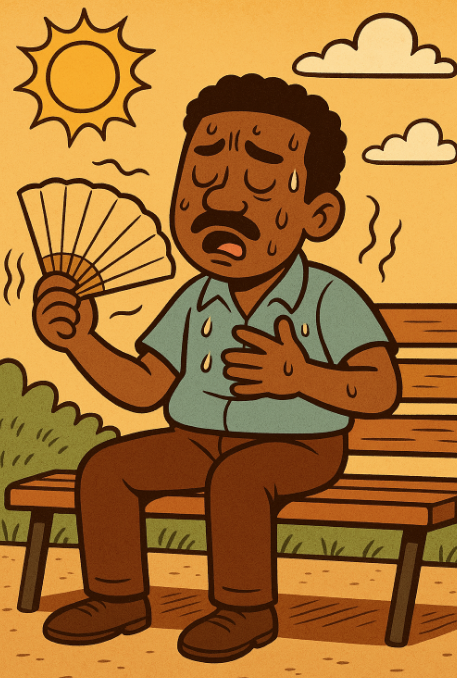
The Rise of Heat-Related Illnesses and the Changing Climate
Amidst the escalating impacts of climate change, public health officials are raising alarms over a concerning rise in heat-related illnesses. Recent reports have highlighted the increasing frequency and intensity of heatwaves, particularly affecting urban populations worldwide.
The Science Behind Heat Waves
Heat waves are prolonged periods of excessive heat, often combined with high humidity. These weather events are projected to intensify due to global warming, as highlighted by the WHO’s recent report on the impact of climate change on health. Rising temperatures exacerbate existing health issues and introduce new health challenges, particularly for vulnerable populations.
Global Climate Change and Public Health
The connection between climate change and public health is gaining unprecedented attention. The United Nations reports characterize the climate crisis as a critical health emergency, with 2024 noted as the hottest year on record. Such extreme temperatures contribute to the surge in heat-related illnesses and fatalities.
- Cardiovascular and Respiratory Distress: Extreme heat stresses the heart, leading to increased incidents of heart attacks and heat strokes.
- Economic and Environmental Disparities: Low-income communities are disproportionately affected due to limited access to essential resources, such as air conditioning.
- Educational and Awareness Campaigns: Strategies include advising schools and workplaces to minimize physical exertion during peak heat times.
Preparing for the Heat
Communities around the world are being urged to enhance their emergency preparedness plans in anticipation of future climate extremes. As climate change continues to drive more frequent and severe weather events, it is essential for local governments and organizations to proactively address the challenges these changes may pose.
Public health guidelines emphasize the importance of staying hydrated, especially during heatwaves, when the risk of heat-related illnesses significantly increases. It is crucial for individuals to drink plenty of water throughout the day, even if they do not feel thirsty, as dehydration can occur more rapidly in extreme temperatures.
Additionally, wearing lightweight, breathable clothing can help individuals maintain a comfortable body temperature during hot weather. Light-colored fabrics are particularly effective in reflecting sunlight, which can reduce the body’s heat absorption.
To further protect against the dangers of extreme heat, it is advisable to stay indoors during the hottest parts of the day, typically between 10 a.m. and 4 p.m. When remaining indoors, individuals should use fans or air conditioning when possible to keep their living spaces cool. If air conditioning is not available, seeking respite in public spaces, such as cooling centers or malls, can provide relief from the heat.
Communities should also consider implementing outreach programs to ensure that vulnerable populations, such as the elderly and those with pre-existing health conditions, are adequately informed and prepared for extreme weather events. By fostering resilience through preparation and education, communities can better protect their residents from the impacts of climate extremes.
Innovative Solutions and Public Response
In response to this growing public health threat, innovations such as heat action plans and urban redesigns to increase green spaces are being considered and implemented. The aim is to mitigate heat through urban planning and tailored healthcare services.
Public awareness campaigns are also amplifying, urging individuals to be vigilant during heat events. The WHO’s recommendation includes using wearable technology to monitor health signs and symptoms during heatwaves.
Final Thoughts
Pioneering public health measures are necessary to navigate the looming threats posed by climate change. The way forward involves strengthening community resilience and ensuring equitable access to healthcare for all affected populations. Addressing heat-related illnesses requires a multifaceted approach that encompasses policy shifts, grassroots efforts, and individual behavioral changes.
In conclusion, the rising heatwave scenarios, bolstered by climate change, emphasize the urgent need for comprehensive public health strategies. Mitigating its impact requires global cooperation and understanding of the intricate balance between environmental health and human survival.



